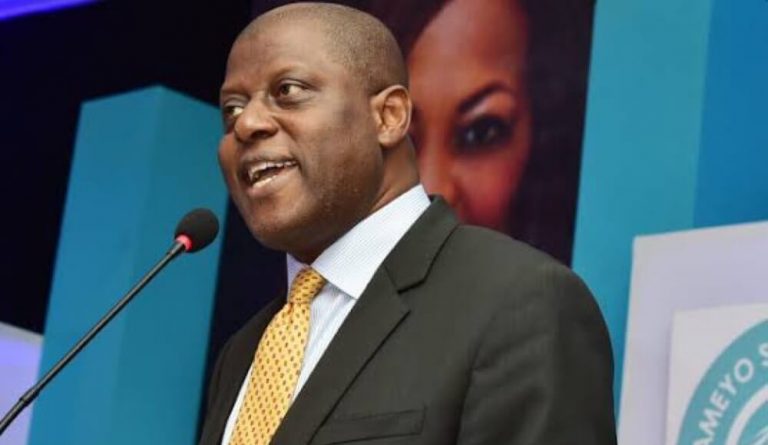
The Central Bank of Nigeria (CBN) has projected a significant reduction in rising inflation and exchange rates in the upcoming year, expecting a more stabilized economic outlook for 2024.
Olayemi Cardoso, the Governor of the CBN, delivered these projections while addressing the National Assembly Joint Committee on Banking, Insurance, and Other Financial Institutions on Thursday.
During his presentation to committee members from both chambers of the National Assembly, Cardoso highlighted an optimistic forecast for the domestic economy in 2024. He assured that despite short-term inflationary pressures, the year ahead would witness a decline in inflation rates, which is currently at 27.63 percent.
Tekedia Mini-MBA edition 16 (Feb 10 – May 3, 2025) opens registrations; register today for early bird discounts.
Tekedia AI in Business Masterclass opens registrations here.
Join Tekedia Capital Syndicate and invest in Africa’s finest startups here.
Additionally, he expressed confidence in a substantial reduction in exchange rate pressures, envisioning a more stable functioning of the foreign exchange market.
“The outlook for the domestic economy remains positive and is expected to maintain a positive trajectory for 2024. Inflationary pressures may persist in the short term but are expected to decline in 2024. Exchange rate pressures are also expected to reduce significantly with the smooth functioning of the foreign exchange market,” affirmed Governor Cardoso.
He attributed the positive outlook to the unification of exchange rate windows in June 2023, a policy shift aimed at curbing arbitrage, rent-seeking behavior, and speculation within the market. This move, according to Cardoso, intends to establish a market-driven exchange rate system where foreign exchange demand and supply dictate rates.
“The premium has narrowed and our focus on increasing the autonomous FX supply would lead to more stability and further narrowing of the premium,” he said.
Highlighting trade statistics, Cardoso revealed that total trade in the third quarter of 2023 amounted to N18.804.68 billion. Notably, exports accounted for N10.346.60 billion, while total imports stood at N8.457.68 billion, marking a positive trade balance. He predicted that this surplus would contribute to bolstering external reserves.
However, Governor Cardoso cautioned about lower revenue expectations from oil exports in 2024 due to various domestic factors affecting oil production. He noted challenges such as crude oil theft, pipeline vandalization, production shut-ins, and divestments by major oil companies, leading to the country’s underperformance in oil production targets.
“We expect less revenue from oil exports due to the production limit of 1.78mbpd in 2024. The OPEC-approved quota for Nigeria is 1.8mbpd, which is higher than the 2024 budget assumption.
“However, the country’s production has been below these thresholds. The budget benchmark for 2023 was 1.69mbpd, but the highest level of production during the year was about 1.35mbpd in Q3 of 2023,” he said.
Preceding the CBN Governor’s presentation, Senator Tokunbo Abiru, Chairman of the joint committee, highlighted that the interactive session was a statutory briefing in compliance with existing laws.
Amidst these projections, critics have voiced skepticism regarding the economy’s potential rebound in the forthcoming year, citing ongoing economic challenges. The Nigerian currency, the naira, has faced downward pressure, depreciating to as low as N1,260 per dollar in the parallel market and N904.65 per dollar in the official Nigerian Foreign Exchange Market (NAFEM).
The CBN’s forward-looking projections are understood to be aimed at mitigating the effects of speculations and fostering stability in Nigeria’s fiscal and exchange rate markets.



